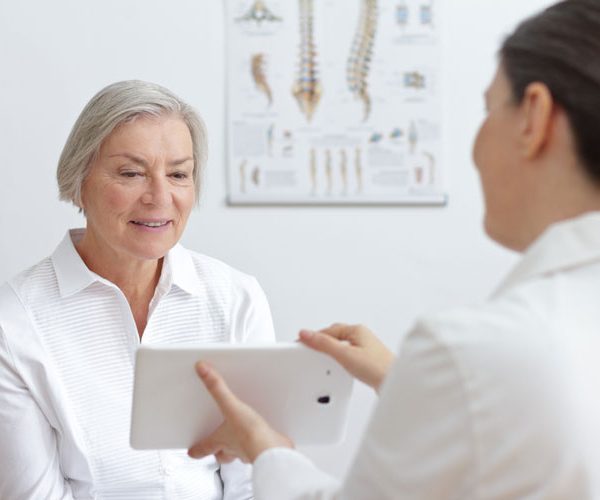In the hustle and bustle of our daily routines, it’s easy to take for granted the silent but crucial role our bones play. They form the structure that supports our bodies, shield our vital organs, and enable movement. Often, we don’t consider the importance of maintaining bone health until issues arise. By recognizing the critical role bones play in our overall well-being, we can take proactive measures to reduce the risk of bone-related diseases and fractures. Ensuring strong and healthy bones is essential for a high quality of life, and healthcare providers are instrumental in guiding patients towards optimal bone health.
Why Bone Health Matters
Strong bones are fundamental not just for physical stability and strength but also for our general health. They act as a reservoir for minerals such as calcium and phosphorus, which are vital for numerous bodily functions. Good bone health is linked to better mobility, lower fracture risk, and the prevention of conditions like osteoporosis.
Tips for Maintaining Healthy Bones
1. Adequate Calcium and Vitamin D Intake:
Calcium is a crucial component of bone tissue, while vitamin D enhances calcium absorption. Encourage the intake of calcium-rich foods such as dairy products, leafy greens, and fortified cereals. The recommended daily intake varies from 1000 to 1300 mg, depending on age and gender. Additionally, ensure sufficient vitamin D levels by promoting outdoor activities for natural synthesis or recommending supplements if needed.
2. Engage in Weight-Bearing Exercises:
Weight-bearing exercises stimulate the production of new bone tissue and enhance bone strength. Activities such as walking, jogging, dancing, and weightlifting are excellent choices. Aim for at least 150 minutes of moderate-intensity aerobic exercise or 75 minutes of vigorous activity per week, coupled with strength training exercises targeting major muscle groups.
3. Maintain a Balanced Diet:
A diet rich in fruits, vegetables, whole grains, and lean proteins provides essential nutrients for bone health. Adequate protein intake supports the formation and repair of bone tissue. Advise patients to limit alcohol consumption and avoid smoking, both of which can harm bone health.
4. Be Aware of Medication Effects:
Some medications can negatively impact bone health. Long-term use of corticosteroids, for example, can lead to bone loss. It’s important for healthcare professionals to educate patients on potential side effects and work together to manage medication plans while mitigating risks to bone health.
5. Prevent Falls and Injuries:
Preventing falls is critical, especially for older adults. Recommend regular eye check-ups, removing home hazards, and using assistive devices when necessary. Encourage activities that improve balance, flexibility, and muscle strength, such as yoga or tai chi.
6. Regular Bone Density Assessments:
For women over 65 and others at risk of osteoporosis, regular bone density screenings are essential for detecting early signs of bone loss. Portable bone density scanners, which use ultrasound technology, offer a convenient alternative to DXA scans and can be utilized in community settings to increase accessibility.
Building a Strong Foundation for the Future
Promoting bone health is a cornerstone of overall wellness. Healthcare professionals play a pivotal role in educating and empowering patients to adopt healthy practices. By stressing the importance of calcium and vitamin D, engaging in weight-bearing exercises, maintaining a balanced diet, being cautious with medications, preventing falls, and undergoing regular bone density assessments, individuals can build a solid foundation for skeletal strength and resilience. Prioritizing bone health today ensures a healthier future for tomorrow.
Resource
- National Institutes of Health (NIH). “Calcium.” Office of Dietary Supplements, https://ods.od.nih.gov/factsheets/Calcium-HealthProfessional/.
- National Institutes of Health (NIH). “Vitamin D.” Office of Dietary Supplements, https://ods.od.nih.gov/factsheets/VitaminD-HealthProfessional/.
- Centers for Disease Control and Prevention (CDC). “Physical Activity Guidelines.” CDC, https://www.cdc.gov/physicalactivity/basics/adults/index.htm.
- National Osteoporosis Foundation (NOF). “Exercise for Strong Bones.” NOF, https://www.nof.org/patients/fracturesfall-prevention/exercisesafe-movement/.
- Mayo Clinic. “Nutrition and Healthy Eating.” Mayo Clinic, https://www.mayoclinic.org/healthy-lifestyle/nutrition-and-healthy-eating/basics/nutrition-basics/hlv-20049477.
- National Institute of Arthritis and Musculoskeletal and Skin Diseases (NIAMS). “Bone Health.” NIAMS, https://www.niams.nih.gov/health-topics/bone-health.












